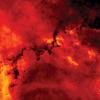Research Report
 With the explosion of social media has come a feast of data for scientists to analyze.
With the explosion of social media has come a feast of data for scientists to analyze. The world is changing; it seems natural that prices for large purchases such as homes would change, too.
The world is changing; it seems natural that prices for large purchases such as homes would change, too.
 At this year’s New Venture Challenge (NVC), a rowdy annual CU Boulder startup competition at the Boulder Theater, well-known entrepreneur and venture capitalist Brad Feld witnessed a transformative moment for the campus.
At this year’s New Venture Challenge (NVC), a rowdy annual CU Boulder startup competition at the Boulder Theater, well-known entrepreneur and venture capitalist Brad Feld witnessed a transformative moment for the campus. Mass media representations of space weather—variable conditions in space that can affect the technological systems modern society depends on—often evoke visions of catastrophic power grid failures and global chaos.
Mass media representations of space weather—variable conditions in space that can affect the technological systems modern society depends on—often evoke visions of catastrophic power grid failures and global chaos. How many stars does a black hole eat? The answer to this riddle, at least for some supermassive black holes, is one per year.
How many stars does a black hole eat? The answer to this riddle, at least for some supermassive black holes, is one per year.
 CU Boulder researchers are also investigating collisions between much smaller objects in space.
CU Boulder researchers are also investigating collisions between much smaller objects in space.
 Students, including undergraduates, at the University of Colorado Boulder have helped solve a 60-year-old space mystery using a satellite the size of a shoebox.
Students, including undergraduates, at the University of Colorado Boulder have helped solve a 60-year-old space mystery using a satellite the size of a shoebox.

